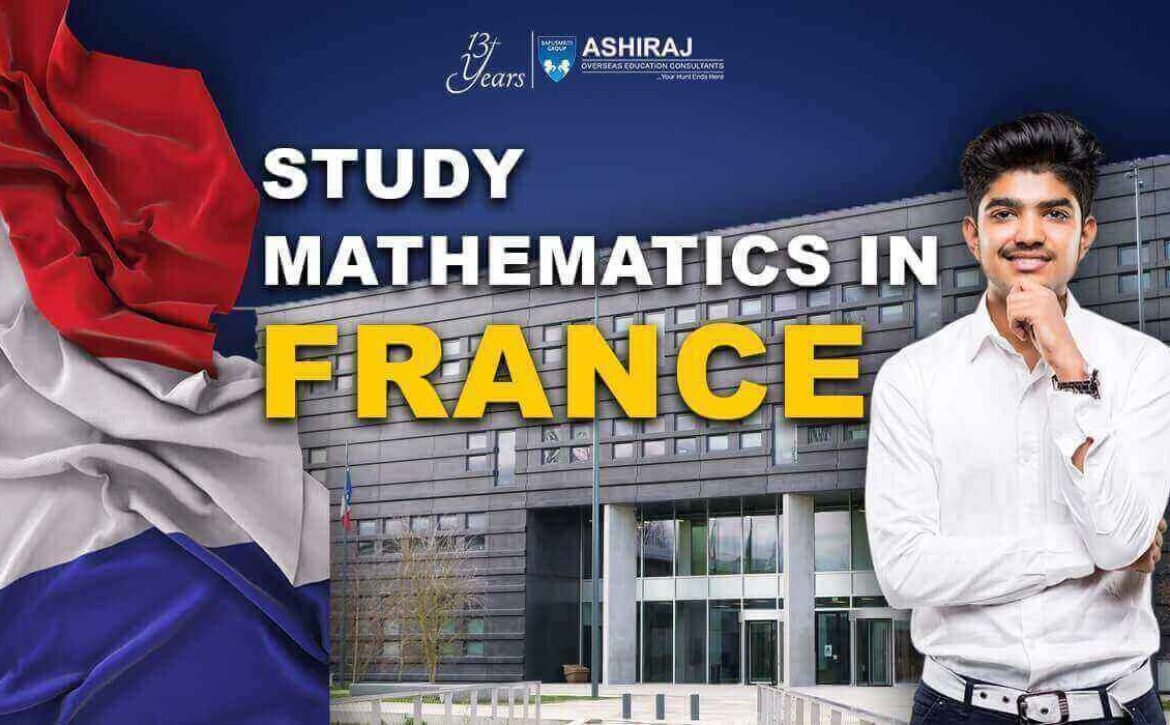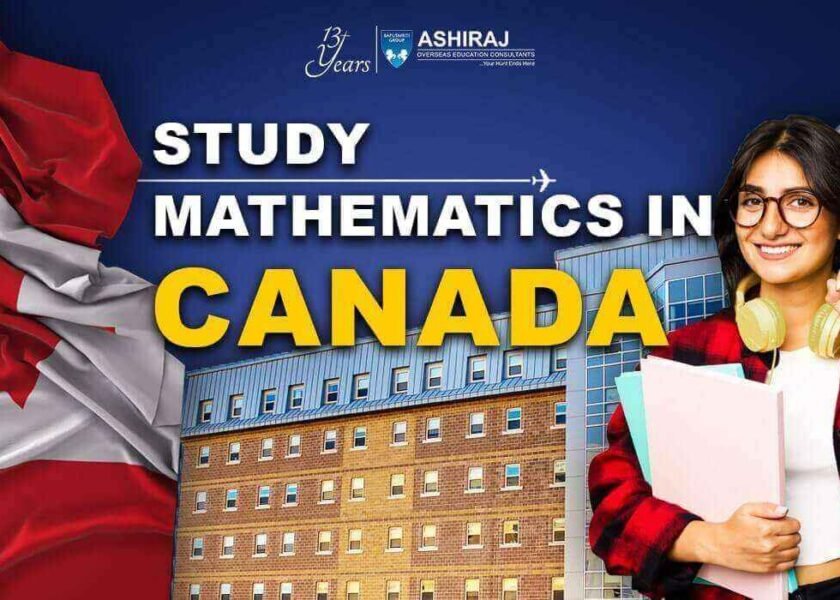
Mathematics in France
Mathematics in France has a rich and illustrious history, deeply intertwined with the country’s intellectual heritage and scientific achievements. From the groundbreaking contributions of luminaries like René Descartes and Pierre-Simon Laplace to modern advancements in fields such as algebraic geometry and number theory, France has consistently been at the forefront of mathematical innovation. The French mathematical tradition emphasizes rigor, clarity, and elegance, characteristics that have profoundly influenced the development of the discipline worldwide.
Mathematics in France encompasses a diverse range of topics, including analysis, differential equations, and mathematical physics. French mathematicians have made significant strides in applied mathematics, playing a crucial role in fields such as mechanics, fluid dynamics, and cryptography. Moreover, France boasts renowned mathematical institutions like the Institut des Hautes Études Scientifiques (IHÉS) and the Institut Henri Poincaré, which foster collaboration and research excellence. With its rich heritage, vibrant research community, and enduring commitment to mathematical excellence, France continues to be a powerhouse in the world of mathematics.
Why to Study Mathematics in France?
- Rich Historical Legacy: France boasts a rich history of mathematical discovery, with influential figures like Descartes and Laplace shaping the course of the discipline.
- Academic Excellence: French universities and research institutions consistently rank among the top in the world for mathematics, offering high-quality education and research opportunities.
- Diverse Specializations: Mathematics in France covers a broad spectrum of specializations, from pure mathematics to applied fields like mathematical physics and cryptography, catering to varied interests and career aspirations.
- Emphasis on Rigor and Elegance: The French mathematical tradition places a strong emphasis on rigor, clarity, and elegance, fostering a deep understanding of mathematical concepts and problem-solving skills.
- Vibrant Research Community: France hosts numerous research institutes and centers dedicated to mathematics, providing a stimulating environment for collaboration and innovation.
- International Recognition: A degree in mathematics from France carries international recognition and opens doors to career opportunities in academia, industry, and research worldwide.
- Cultural Experience: Studying mathematics in France offers the chance to immerse oneself in the country’s rich cultural heritage while pursuing academic excellence.
- Networking Opportunities: Students have access to a vast network of mathematicians, researchers, and industry professionals, facilitating career growth and development.
In conclusion, studying mathematics in France offers a unique blend of academic excellence, cultural enrichment, and career prospects, making it an attractive destination for aspiring mathematicians.
Top Universities to Study Mathematics in France
University | QS World University Ranking 2023 | Type of University | Average Annual Fees | Programs Offered |
École Normale Supérieure | 1st | Public | €1,000 – €2,000 | Mathematics, Applied Mathematics |
Université Pierre et Marie Curie (UPMC) | 2nd | Public | €1,000 – €3,000 | Mathematics, Mathematical Physics |
Université Paris-Sud | 3rd | Public | €2,000 – €4,000 | Mathematics, Algebraic Geometry |
Université Paris Diderot | 4th | Public | €1,500 – €3,500 | Mathematics, Numerical Analysis |
École Polytechnique | 5th | Public | €3,000 – €5,000 | Mathematics, Computational Mathematics |
The top universities in France for mathematics offer a diverse range of programs and research opportunities. École Normale Supérieure, ranked first in the QS World University Rankings 2023, is renowned for its excellence in mathematics and applied mathematics programs, with relatively affordable annual fees ranging from €1,000 to €2,000. Université Pierre et Marie Curie (UPMC) follows closely, offering programs in mathematics and mathematical physics at an average annual fee of €1,000 to €3,000. Université Paris-Sud, ranked third, provides programs in mathematics and algebraic geometry, with annual fees ranging from €2,000 to €4,000. Université Paris Diderot and École Polytechnique round up the top five, offering programs in various mathematical disciplines with corresponding average annual fees. These universities not only offer top-notch education but also provide a conducive environment for research and academic growth in the field of mathematics in France.
Course Curriculum for Mathematics in France
- Foundational Mathematics: The curriculum typically begins with foundational courses covering topics such as calculus, algebra, and geometry to build a strong mathematical base.
- Advanced Analysis: Students delve into advanced topics like real analysis, complex analysis, and functional analysis, gaining a deep understanding of mathematical structures and proofs.
- Abstract Algebra: The curriculum includes courses in abstract algebra, covering groups, rings, fields, and other algebraic structures, essential for understanding higher-level mathematics.
- Differential Equations: Students study differential equations and their applications, including ordinary differential equations, partial differential equations, and numerical methods.
- Specialized Electives: Mathematics in France offers a wide range of specialized electives, allowing students to tailor their education to their interests, such as algebraic geometry, number theory, mathematical physics, and mathematical modeling.
- Research Opportunities: Many programs offer opportunities for research projects or internships, allowing students to apply their mathematical knowledge to real-world problems and gain hands-on experience.
- Interdisciplinary Collaboration: Mathematics in France encourages interdisciplinary collaboration, with opportunities to work with researchers in fields like physics, computer science, and engineering.
The course curriculum of Mathematics in France is designed to provide students with a rigorous and comprehensive education, preparing them for careers in academia, research, industry, and beyond. With its emphasis on theoretical foundations, practical applications, and interdisciplinary collaboration, Mathematics in France offers a dynamic and enriching learning experience for aspiring mathematicians.
Eligibility Criteria & Admission Requirements for MS in Mathematics in France
- Language Proficiency: Applicants must demonstrate proficiency in English or French through standardized tests such as IELTS or TOEFL. Minimum scores vary by institution but typically range from 6.0 to 7.5 for IELTS and 80 to 100 for TOEFL.
- Standardized Test Scores: Depending on the program, applicants may need to submit scores for GRE or GMAT. GRE scores of around 160 for Quantitative Reasoning and 150 for Verbal Reasoning are often required, while GMAT scores of approximately 650 are common.
- Academic Qualifications: Applicants must hold a bachelor’s degree in mathematics or a related field from a recognized institution. Some programs may require specific coursework or GPA thresholds.
- Passport & Student Visa: International applicants must possess a valid passport and obtain a student visa to study in France. This process typically involves submitting necessary documentation to the French consulate or embassy in their home country.
- Academic Certificates: Applicants must provide transcripts and academic certificates attesting to their previous education, including degree certificates and any relevant diplomas or qualifications.
- Work Experience: While not always mandatory, relevant work experience in mathematics or a related field can strengthen an applicant’s candidacy, particularly for competitive programs or scholarships.
Table: Standardized Test Scores
Test | Minimum Score |
IELTS | 6.5 |
TOEFL | 90 |
GRE | Quantitative: 160 <br> Verbal: 150 |
GMAT | 650 |
Meeting the eligibility criteria is essential for prospective students interested in pursuing mathematics in France, ensuring they possess the necessary qualifications and language proficiency to succeed in their chosen program.
Documents Required for Studying Mathematics in France
- Passport: A valid passport is essential for international students applying to study mathematics in France, serving as proof of identity and nationality.
- Letters of Recommendation (LOR): Applicants typically need to submit two or more LORs from academic or professional referees who can attest to their academic abilities, character, and potential for success in the program.
- Statement of Purpose (SOP): An SOP provides insight into the applicant’s motivations, goals, and aspirations for studying mathematics in France, allowing admissions committees to assess their suitability for the program.
- Curriculum Vitae (CV): A comprehensive CV outlines the applicant’s educational background, work experience, academic achievements, publications, and any relevant extracurricular activities or interests.
- Official High School Transcripts: Applicants must provide official transcripts from their high school or secondary education institution, detailing their academic performance and coursework.
- Educational Certificates: Certified copies of educational certificates, including diplomas or degrees earned, are required to verify the applicant’s qualifications and eligibility for the program.
- Work Experience Certificate: If applicable, a work experience certificate or letter from previous employers may be required to demonstrate relevant professional experience in mathematics or a related field.
- Proof of Financial Resources: Applicants must provide evidence of sufficient financial resources to cover tuition fees, living expenses, and other costs associated with studying mathematics in France, such as bank statements, scholarship awards, or sponsorship letters.
Ensuring all necessary documents are accurately prepared and submitted is crucial for a successful application to study mathematics in France, facilitating the admissions process and ensuring compliance with university requirements.
Admission Process for Mathematics in France
- Research Institutions: Explore universities and research institutes in France offering mathematics programs, considering factors such as rankings, faculty expertise, and program curriculum.
- Check Eligibility: Review the eligibility criteria for admission, including academic qualifications, language proficiency requirements (IELTS or TOEFL), and standardized test scores (GRE or GMAT).
- Prepare Documents: Gather required documents, including passport, letters of recommendation (LOR), statement of purpose (SOP), curriculum vitae (CV), official transcripts, educational certificates, work experience certificate, and proof of financial resources.
- Application Submission: Complete the online application form for your chosen mathematics program, ensuring all required information and documents are accurately provided.
- Pay Application Fee: Pay the application fee as specified by the institution, typically through online payment methods.
- Submit Application: Submit your completed application along with the required documents before the specified deadline.
- Wait for Notification: Wait for notification from the university regarding the status of your application. This may include an invitation for an interview or additional documentation if required.
- Receive Admission Decision: Upon review of your application, you will receive an admission decision from the university. If accepted, follow the instructions provided for enrollment and visa application.
- Visa Application: Apply for a student visa (if applicable) by submitting required documents to the French consulate or embassy in your country.
- Enrollment: Once your visa is approved, proceed with enrollment at the university and prepare for your journey to study mathematics in France.
Navigating the admission process for mathematics programs in France requires careful planning, attention to detail, and timely submission of required documents to ensure a smooth application experience.
“Education is the most powerful weapon which you can use to change the world.”
Nelson Mandela
Cost of Mathematics Course in France
- Tuition Fees: Public universities in France typically offer low tuition fees for both domestic and international students studying mathematics. Annual fees range from €1,000 to €5,000, depending on the institution and program.
- Private Institutions: Private universities or specialized mathematics schools may have higher tuition fees, averaging around €5,000 to €10,000 per year. However, scholarships and financial aid options are often available to assist students with the cost.
- Living Expenses: The cost of living in France varies depending on the city and lifestyle. On average, students should budget approximately €800 to €1,200 per month to cover accommodation, food, transportation, and other personal expenses.
- Accommodation: Housing options for students include university dormitories, shared apartments, or private rentals. Costs range from €300 to €800 per month, depending on the location and type of accommodation.
- Scholarships and Financial Aid: Mathematics students in France may be eligible for scholarships, grants, or bursaries offered by the government, universities, or external organizations to help cover tuition fees and living expenses.
- Additional Costs: Students should budget for additional expenses such as textbooks, study materials, health insurance, and visa fees. Overall, studying mathematics in France offers excellent value for money compared to other countries, with relatively affordable tuition fees and a high quality of education.
Scholarships for Mathematics Courses in France
Scholarship Name | Amount | Application Deadline |
Eiffel Excellence Scholarship | Full tuition fees, monthly stipend, and other expenses | January 9th (annually) |
French Government Scholarship | Variable, covers tuition fees and living expenses | Varies by program |
Erasmus+ Scholarship | Variable, covers tuition fees, travel, and living expenses | Varies by program |
L’Oréal-UNESCO For Women in Science Fellowship | €15,000 for doctoral studies | Varies by program |
Fondation Sciences Mathématiques de Paris (FSMP) Fellowship | €1,500 per month for doctoral studies | Varies by program |
Mathematics in France offers numerous scholarships to support students pursuing mathematics degrees at various levels. The Eiffel Excellence Scholarship provides full financial support, including tuition fees, stipends, and other expenses, with an application deadline of January 9th annually. The French Government Scholarship and Erasmus+ Scholarship also offer financial assistance for tuition fees and living expenses, with application deadlines varying by program. Additionally, specialized scholarships like the L’Oréal-UNESCO For Women in Science Fellowship and Fondation Sciences Mathématiques de Paris (FSMP) Fellowship provide support specifically for women in science and doctoral students, respectively. Applicants are encouraged to research and apply for these scholarships to help alleviate the financial burden of studying mathematics in France.
Career Opportunities After Mathematics in France
Job Profile | Average Salary (EUR/year) |
Data Analyst | €40,000 – €60,000 |
Actuary | €50,000 – €80,000 |
Financial Analyst | €45,000 – €70,000 |
Software Engineer | €45,000 – €70,000 |
Statistician | €45,000 – €70,000 |
Operations Research Analyst | €40,000 – €65,000 |
Quantitative Analyst | €50,000 – €80,000 |
Mathematician | €40,000 – €70,000 |
Professor/Lecturer | €50,000 – €90,000 |
Mathematics in France opens doors to diverse career opportunities across various sectors. Data analysts and statisticians are in high demand in industries such as finance, technology, and healthcare, with average salaries ranging from €40,000 to €70,000 per year. Actuaries, specializing in risk assessment and insurance, earn higher salaries ranging from €50,000 to €80,000 annually. Financial analysts and software engineers also command competitive salaries in the range of €45,000 to €70,000 per year. Operations research analysts and quantitative analysts play crucial roles in optimizing business processes and financial modeling, with salaries ranging from €40,000 to €80,000 per year. Mathematicians and professors/lecturers in academia can expect salaries ranging from €40,000 to €90,000 per year, depending on experience and qualifications. With its strong mathematical tradition and thriving industries, France offers lucrative career prospects for mathematics graduates.
Frequently Asked Questions About Mathematics in France
Some of the top universities for mathematics in France include École Normale Supérieure, Université Pierre et Marie Curie, and Université Paris-Sud.
Many mathematics programs in France are offered in both English and French, providing options for international students.
Admission requirements typically include academic qualifications, language proficiency tests (such as IELTS or TOEFL), and sometimes standardized test scores (such as GRE or GMAT).
Yes, there are several scholarships available for mathematics students in France, including the Eiffel Excellence Scholarship and the French Government Scholarship.
Tuition fees for mathematics programs in France vary depending on the institution and program, but they generally range from €1,000 to €5,000 per year for public universities.
Mathematics graduates in France can pursue careers as data analysts, actuaries, financial analysts, software engineers, statisticians, and more.
Yes, international students in France are allowed to work part-time during their studies, typically up to 20 hours per week.
Yes, many universities in France offer postgraduate programs in mathematics, including master’s and doctoral degrees.
The duration of mathematics degrees in France varies depending on the level of study. A bachelor’s degree typically takes three years, while master’s and doctoral programs may take two to four years or more.
France has numerous research institutes and centers dedicated to mathematics, providing ample opportunities for students to engage in cutting-edge research projects.




